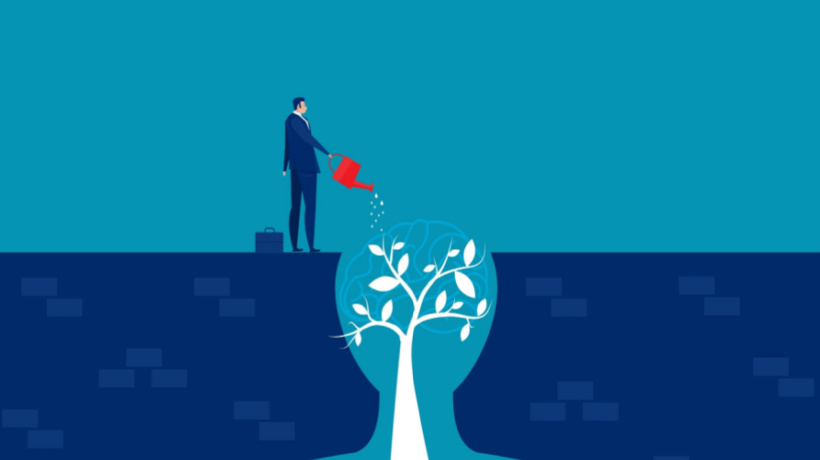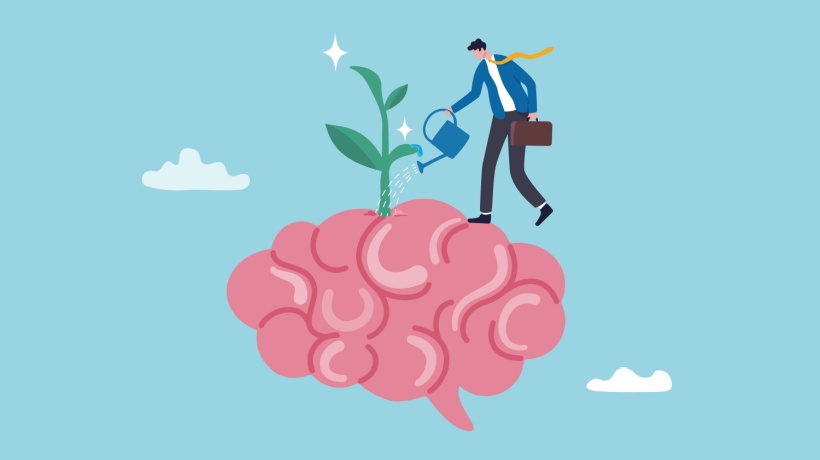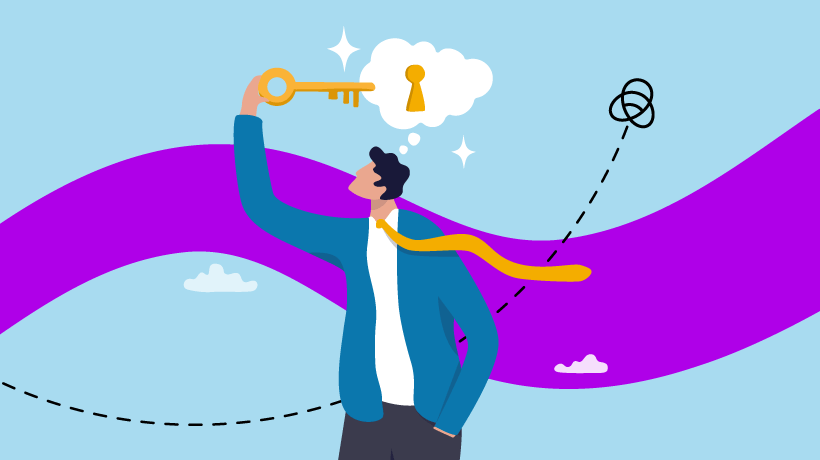Believe That Hard Work And Effort Do Pay Off
As machines become increasingly accurate and intelligent, we humans will need to sharpen our cognitive skills. One of your primary responsibilities as a Learning and Development leader is to ensure that you empower the workforce to develop the four sets of skills that are critical to thriving in 2030. A series of ten articles, eLearning Skills 2030, explores all the skills to make your job easier. This article, the eighth in the eLearning Skills 2030 series, explores developing a growth mindset, why it is a critical skill, and how to sharpen it.
What Is A Growth Mindset?
During the height of the COVID-19 pandemic, while most of us were sheltering in place, thousands of selfless professionals, including doctors, first responders, and essential workers, had been suiting up every day. They provided us with medical care, stocked grocery shop shelves, and delivered packages. These everyday heroes faced their fears, risk, life, and death. And put our needs above their own. They stayed optimistic against all odds and delivered practical help to everyone in their communities. When Amazon aired the Everyday Heroes docuseries, which featured more than 15 men and women who selflessly served their communities across the country, I was inspired to explore and analyze their common behavioral traits, understand their key drivers, and glean lessons. The number one trait that every single one of these everyday superheroes shared was a growth mindset.
What is remarkable is that these 15 everyday superheroes mainly stayed positive despite the fear and danger they faced every day because of the pandemic. For example, Pamela, a pediatric nurse practitioner, said that she tried to "live fully, serve others, and seize the day." Daniel, a farmer from Kentucky, tried to remain hopeful every day. Trevor, a senior hospital inventory technologist in New York, chose to hold his bad day and focus on getting the work done. They may not have known it, but Pamela, Daniel, and Trevor were practicing a growth mindset. In her seminal work Mindset: The New Psychology of Success, Stanford professor Carol Dweck points out that people with a growth mindset can trust their abilities, embrace challenges, persist when crises and setbacks occur, and keep succeeding in their efforts. Dweck compares a growth mindset to a fixed mindset. In her research, students with a fixed mindset believed that their knowledge and skills were fixed and were rather afraid to tackle challenges when they arose because they felt it was risky. Conversely, students with a growth mindset believed that they could tackle challenges if they came up with new ways to address them, learned new things, asked for help, and kept plowing forward without giving up.
Why Is A Growth Mindset Necessary?
A growth mindset can make you smarter. Relevant research from the University of Massachusetts Global discusses how new advances in neuroscience research demonstrate that our brain neuroplasticity expands with new experiences and learnings. Brain neurons can grow new connections and fire up faster when we embrace challenges and new learnings as part of the learning journey, as discussed by Dweck. A growth mindset is not essential only in the classroom but also at work and in everyday life. Organizations that foster a growth mindset across students, teachers, and parents, like Fiske Elementary in Boston, can drive better performance outcomes. Fiske Elementary students' MCAS math results were below or on par with the state average. After studying the growth mindset, teachers adopted new behaviors and used specific language to empower and inspire students, and change the school's culture. Within two years, the Fiske Elementary growth percentiles shot to 75%, well above the state's 50% levels.
Similarly, Telenor, a 160-year-old telecom organization in Norway with 172 million customers in Norway and Asia, adopted a growth mindset, beat the competition, and thrived. Leaders and employees took short learning modules online and started using new terminology, such as "working red" to signify learning from failures and continuing forward. After the training, communication between leaders and employees improved and became bidirectional versus top-down.
How To Develop A Growth Mindset
Developing a growth mindset begins with embracing that all of us carry a combination of mindsets. First, you need to embrace your fixed mindset by simply accepting the little voice in your head that tells you to give up when faced with a challenge. Next, you need to recognize what triggers your fixed mindset, such as when you strive to get that new project or get a promotion. Here, Dweck recommends "talking" to the voice in your head by going as far as creating a persona or avatar for your fixed mindset and even giving it a name. Doing so helps you identify, accept, and separate your fixed mindset from your potential. Next, you continuously educate your fixed mindset. Educating your fixed mindset takes time and effort. When faced with a challenge, instead of panicking, you stay calm and tell yourself that you will find a way to tackle the challenge, Google for answers, read up on how to fix the problem, and ask others for help. Most importantly, you hold the belief that you will succeed through hard work and effort.
This is precisely what the everyday superheroes did during the COVID-19 lockdown. They did not have the luxury of taking growth mindset classes or reading articles such as this one. What they did was compose themselves and think about the challenge before them. They decided to remain hopeful, work hard, and focus on helping others through their vocation, even during the worst times of the pandemic. Their mindset carried them through when everything was falling apart and death surrounded us. These everyday superheroes believed and put one foot in front of the other, day by day, and plowed forward. As the volume, velocity, and complexity of change accelerate, you and your teams will face new and unprecedented challenges.









